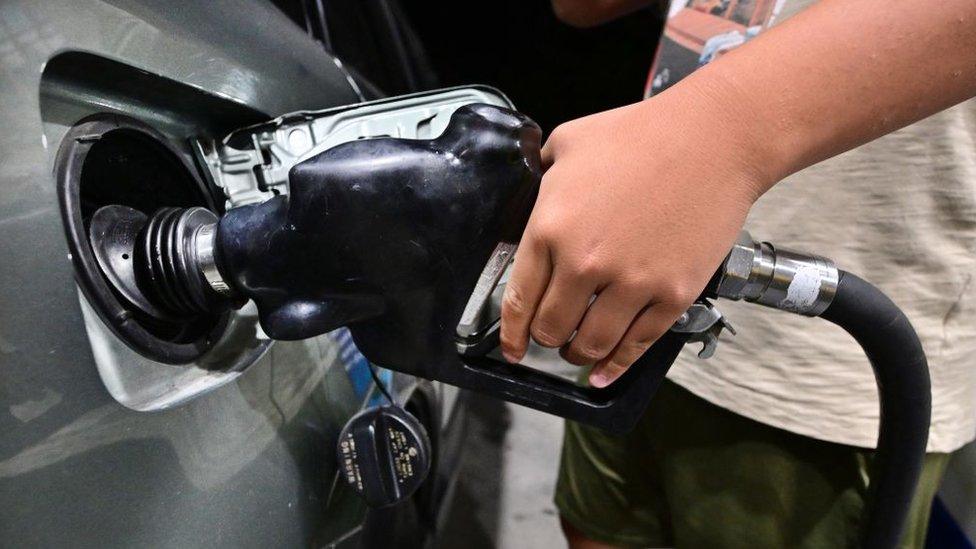US inflation: Higher fuel costs keep driving consumer prices
- Published

Consumer prices continued to rise in the US during September fuelled by higher housing and petrol costs, new figures show.
Inflation was 3.7% over the 12 months to September, which is the same rate that was recorded for August.
The US central bank is debating whether it will need to raise interest rates again to stabilise price growth.
While inflation has cooled significantly from last year, it remains higher than the 2% target.
Analysts said the new data from the US Labor Department offered few decisive clues on the next move from the US Federal Reserve.
"The bigger picture is that the trend is still quite encouraging but the fight continues," said Olu Sonola, head of US economics at Fitch Ratings.
While the annual figure held steady, between August and September inflation cooled from 0.6% to 0.4%.
The increase in housing was the biggest contributor to the increase in the Consumer Price Index, which is the basket of goods and services that the Labor Department uses to measure price increases.
Petrol prices also continued to climb, although at a slower rate than previously.
However, prices for used cars and clothing fell month-on-month while the increase in grocery prices slowed.
The Federal Reserve has already raised borrowing costs sharply and its key interest rate now stands at more than 5.25%, up from near-zero in March 2022.
The rise has hit the public in a number of areas such as sharply higher mortgage rates and more expensive business loans.
The Fed is hoping that the higher rates will encourage saving and reduce business expansion and other activity to cool the economy and ease price pressures.
But while inflation has cooled significantly from more than 9% last year, it remains higher than the Fed's target.
Officials have warned that they expect rates to remain relatively high for some time, in part because job growth and spending has held up far better than expected.
But they have grown increasingly hopeful they will be able to subdue inflation without triggering a severe downturn.
Related topics
- Published20 September 2023